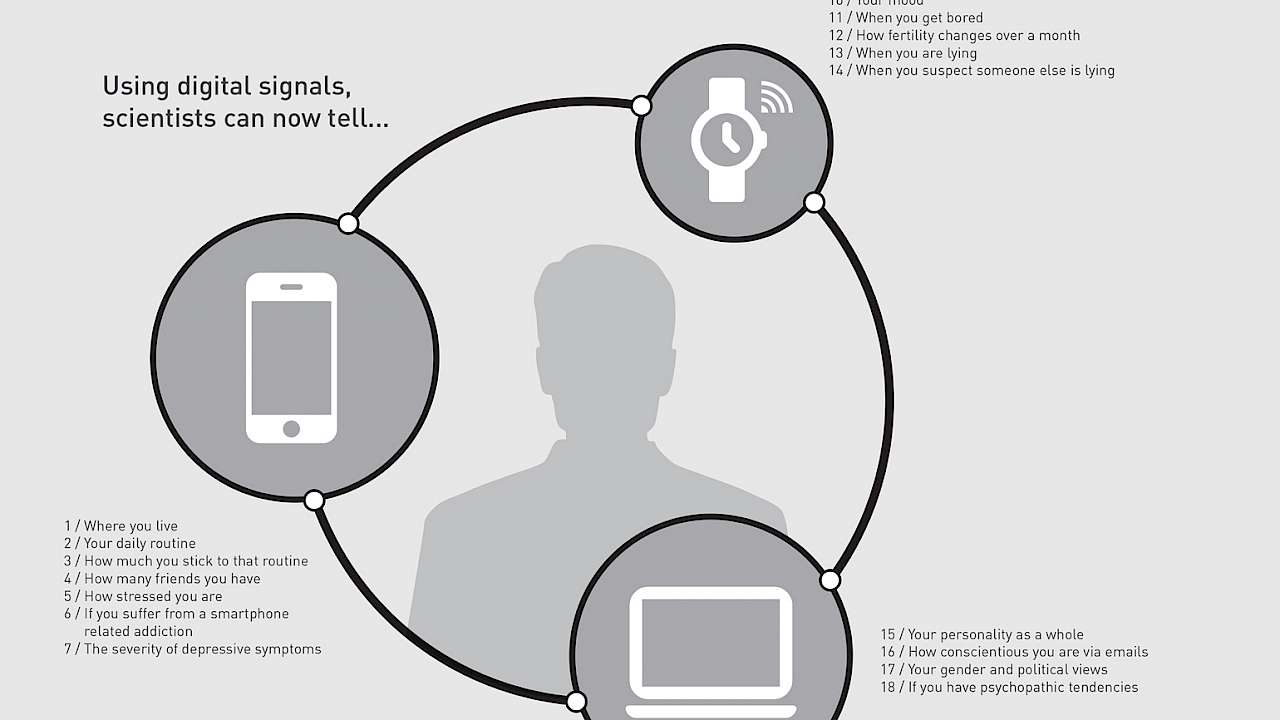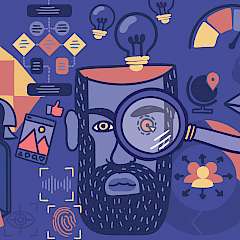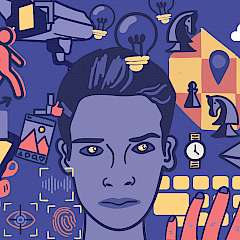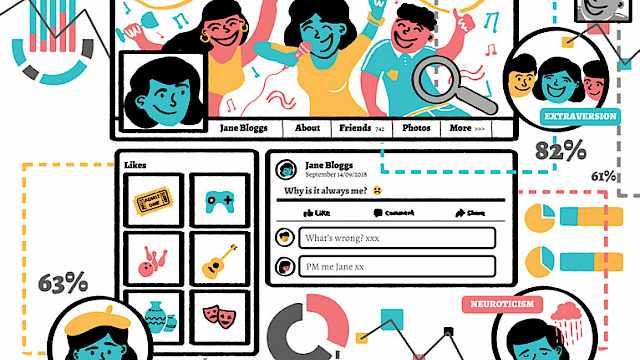From mobile phones to smartwatches and glasses, wearable technology isn’t just the future. It’s happening now. Here we show what wearable technology in general, and phones in particular, say about us and our lives. This research is in its infancy, but given how ubiquitous these devices are, expect to see a lot more on this topic in the future.
Life patterns
On average, people check their smartphone 85 times a day. We also spend a significant amount of time interacting with other devices including tablets, laptops, and wearables. Our interactions with these can easily be recorded to better understand routine patterns of everyday behaviour. For example, because people spend most of their life in the same places, it is possible to predict where people are likely to go based on GPS data from their smartphone. Similarly, an accelerometer placed on the wrist can, over time, build a remarkably accurate picture of how well you are sleeping.
Personality
The distinctive words used within emails and social media allow for the accurate prediction of both complex (e.g. conscientiousness) and simple (e.g. age and gender) individual differences. Research has focused on traces of text left behind from social media and email, but call records and the type of applications used on each smartphone have been shown to predict a variety of personal attributes.
Emotions
A person's mood can be determined from text messages, but also from physiological data recorded by wearable devices. Increased heart rate and levels of sweat emitted from the body can indicate greater levels of physical activity, but the absence of movement may suggest increased levels of stress. Small samples of vocal information can also provide clues to an individual’s current mood based on speech variability. Devices can accurately discriminate worry from confidence.
Social influence
Combining digital traces from multiple people can be particularity revealing. The extent to which one person causes another person's behaviour provides a measure of influence, which can indicate a person's position in a social network and who they like and dislike. Tracked over time such measures give insights into team cohesion.
What your phone says about you
What information can your phone say about you?
- Your identity, with only a few GPS location points
- Your mood, using data such as the length of your SMS and how fast you type or erase it
- If you are stressed, based on call logs, SMS logs, and Bluetooth proximity data
- Your personality, using a broad range of metadata like the number of calls and SMS
- If you're a parent, based on apps usage patterns
- If you have real-world chat with others using Bluetooth proximity
- Where are you likely to go next by analysing GPS data
- If you're sitting, walking, or running, by using accelerometer sensor
- The quality of your sleep, also with accelerometer and only if you sleep with your phone.
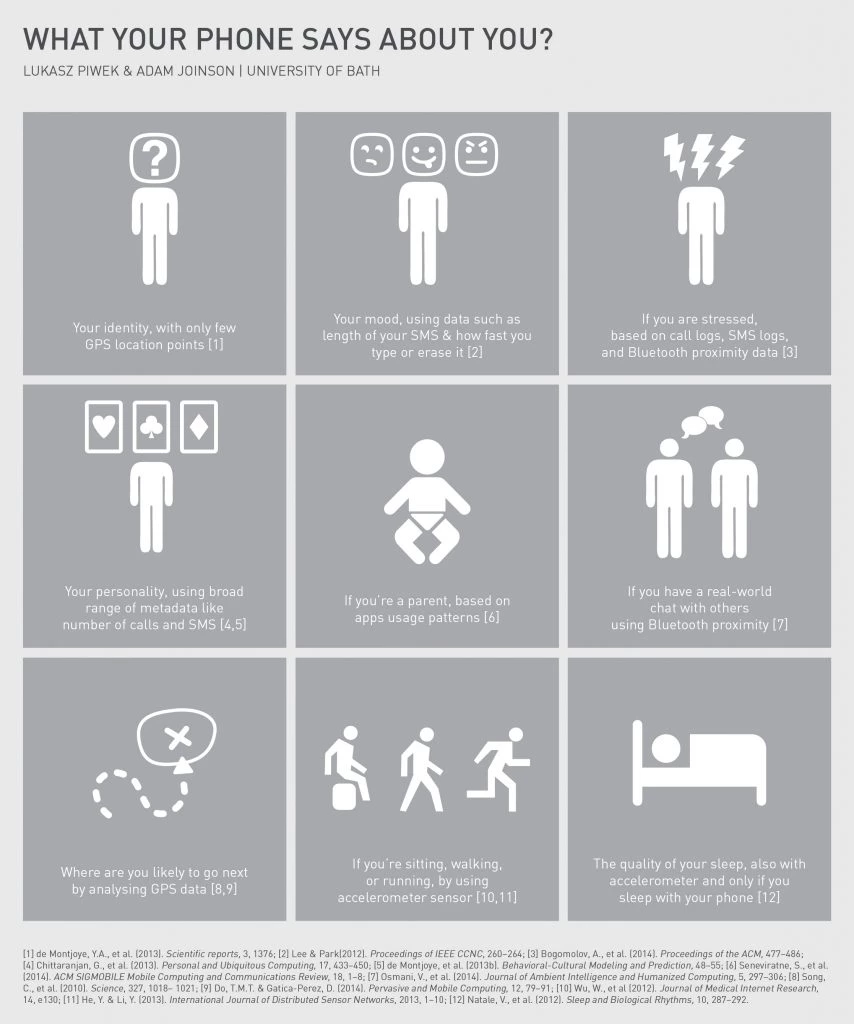
Read more
- de Montjoye, Y.A., et al. (2013). Scientific reports, 3, 1376
- Lee & Park(2012). Proceedings of IEEE CCNC, 260–264
- Bogomolov, A., et al. (2014). Proceedings of the ACM, 477–486
- Chittaranjan, G., et al. (2013). Personal and Ubiquitous Computing, 17, 433–450
- de Montjoye, et al. (2013b). Behavioral-Cultural Modeling and Prediction, 48–55
- Seneviratne, S., et al. (2014). ACM SIGMOBILE Mobile Computing and Communications Review, 18, 1–8
- Osmani, V., et al. (2014). Journal of Ambient Intelligence and Humanized Computing, 5, 297–306
- Song, C., et al. (2010). Science, 327, 1018– 1021
- Do, T.M.T. & Gatica-Perez, D. (2014). Pervasive and Mobile Computing, 12, 79–91
- Wu, W., et al (2012). Journal of Medical Internet Research, 14, e130
- He, Y. & Li, Y. (2013).International Journal of Distributed Sensor Networks, 2013, 1–10
- Natale, V., et al. (2012). Sleep and Biological Rhythms, 10, 287–292.
Copyright Information
As part of CREST’s commitment to open access research, this text is available under a Creative Commons BY-NC-SA 4.0 licence. Please refer to our Copyright page for full details.
